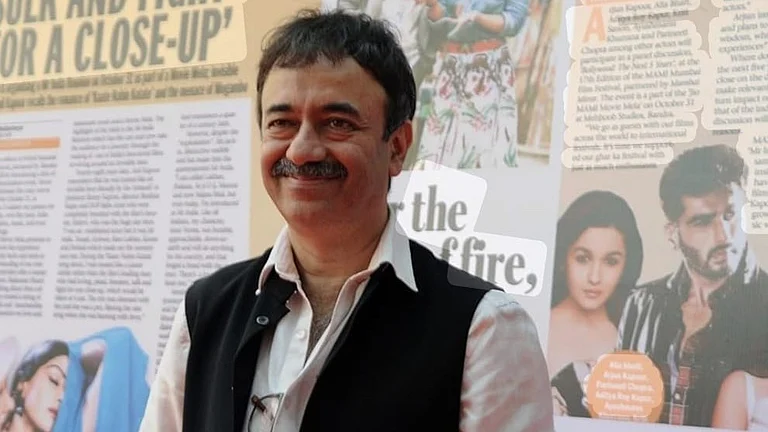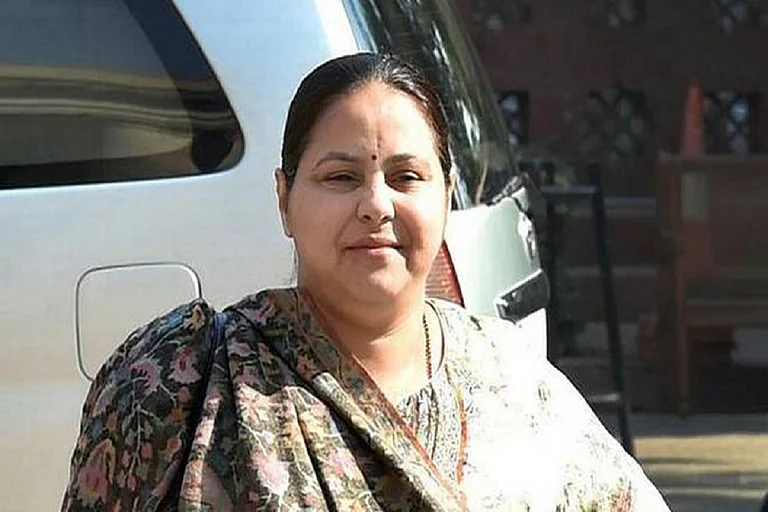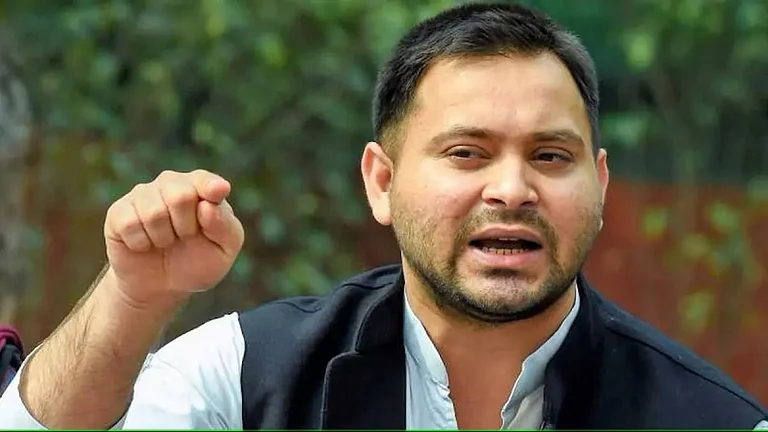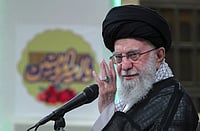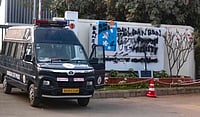
Summary of this article
Once a notorious Bhumihar strongman, Munna Shukla turned his criminal notoriety into political capital, winning multiple elections from Lalganj.
Accused in several high-profile cases, including the murders of RJD minister Brij Bihari Prasad and IAS officer G. Krishnaiah, Shukla was convicted and sentenced to life imprisonment in 2007.
Munna Shukla’s journey from feared gangster to multiple-term MLA captures the deep entanglement of caste, power, and criminality that continues to shape Bihar’s political landscape.
In Bihar’s Vaishali district, jailed strongman Munna Shukla's daughter Shivani is not only RJD candidate for Lalganj but also seeking to uphold her family legacy. The constituency will go to elections in the first phase on November 6.
Munna Shukla, born Vijay Kumar Shukla in Lalganj, Vaishali district, is one of the most well-known names in Bihar’s long lineage of gangster-politicians. Emerging from the socio-political turbulence of the 1990s, when caste-based militancy and muscle power dominated the state’s politics, Shukla carved a space for himself as both a feared enforcer and a political player.
Belonging to the influential Bhumihar community, he rose to prominence as a close relative and ally of Anand Mohan Singh — another powerful Rajput leader — and shared with him both kinship and a reputation for violence wrapped in the rhetoric of caste pride and political assertion.
Munna Shukla’s early years were steeped in the crime-politics nexus of north Bihar, where rival caste groups—primarily Bhumihars, Yadavs, and Dalits—fought for dominance in districts like Vaishali, Muzaffarpur, and Sitamarhi.
He first made headlines in the early 1990s for his involvement in extortion, contract killings, and political intimidation. His name soon appeared in connection with several high-profile murders, including that of Brij Bihari Prasad, a powerful RJD minister, who was gunned down inside a Patna hospital in 1998. Shukla was accused of orchestrating the killing as revenge for earlier clashes between rival political networks.
Over the years, he was implicated in dozens of criminal cases ranging from murder and kidnapping to the use of illegal arms and corruption. Yet, like many of Bihar’s bahubalis (strongmen), Shukla managed to convert notoriety into political legitimacy.
He was elected as an MLA from Lalganj multiple times — first as an independent, then under the banner of the Lok Janshakti Party (LJP), and later the JD(U). His tenure as a legislator was marked by his ability to mobilize caste loyalties and maintain an aura of invincibility despite ongoing trials.
In 2007, Munna Shukla was convicted and sentenced to life imprisonment for his role in the murder of Gopalganj District Magistrate G. Krishnaiah — the same case that saw the conviction of Anand Mohan Singh.
Though he spent several years behind bars, Shukla continued to wield influence through his network of supporters and family members active in local politics. His wife, Annu Shukla, also served as an MLA, ensuring that the family retained political relevance. In Vaishali district, Shukla's daughter Shivani, who flaunts a UK degree, is the RJD candidate for Lalganj.
Today, Munna Shukla represents the enduring figure of Bihar’s bahubali era — a man whose journey from feared gangster to elected representative underscores how caste identity, power, and politics continue to intertwine in the state’s democracy.





